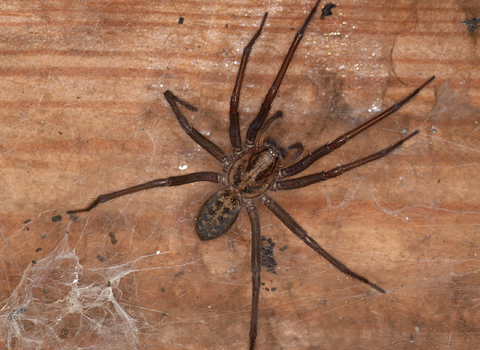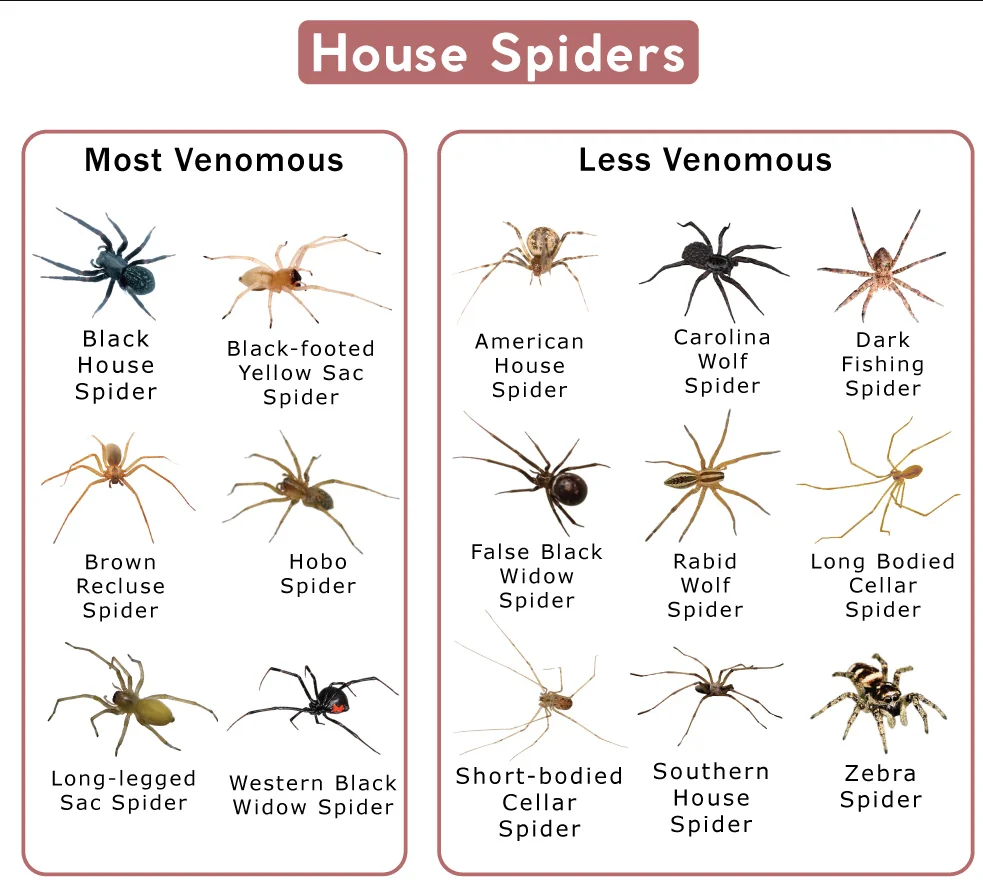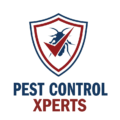Comprehensive Spider Removal in Denton
Serving residents and commercial sites in Lewisville and Krum
Spider Control in Denton, Texas, Pest Control Xperts
For many homeowners in Denton, seeing a spider on the wall or finding a web in a corner is a daily annoyance. However, in North Texas, spiders can be more than just a nuisance; they can be a genuine safety concern. From the venomous Brown Recluse hiding in undisturbed closets to the large Wolf Spider darting across the garage floor, arachnids thrive in our climate. At Pest Control Xperts, we provide specialized spider removal and indoor pest control support for residents in Denton, Lewisville, and Krum. We understand the difference between a harmless garden spider and a potential threat to your family.
A heavy spider population often indicates a deeper issue: a plentiful food source. Spiders are predators, and if they are hanging around your home, it is usually because they are hunting other insects like roaches, flies, or ants. Our team prioritizes a detailed pest inspection to not only remove the spiders and their webs but to address the underlying insect activity attracting them. We utilize safe pest management practices to clear your home of webs and establish a strong barrier against future entry. With clear communication and dependable scheduling, we help you feel comfortable in your own home again.
Spider Problems We Solve in Denton
In Denton County, we encounter a wide variety of arachnids. Residents in older neighborhoods with mature trees often deal with orb weavers building massive webs across walkways, while those in newer subdivisions near Krum might face an influx of ground-dwelling spiders seeking shelter from construction disturbance. The primary concern for most locals is the presence of medically significant species. The Brown Recluse and Black Widow are both native to our area and require a specific, cautious approach. Insect control for spiders is different than for other pests because spiders do not groom themselves like ants or roaches, making standard sprays less effective.
Our goal is comprehensive infestation control. We focus on removing the visible spiders, eliminating their egg sacs, and sweeping away the webs that make a property look neglected. Effective pest management also means reducing the clutter and harboring areas that allow dangerous spiders to hide near your living spaces.
Common signs of a spider issue:
- Cobwebs accumulating in upper corners, vaulted ceilings, or near light fixtures
- Sightings of brown or black spiders in shoes, clothing, or bedding
- Egg sacs (small, silk-wrapped balls) found in garages or basements
- Large, hairy spiders scurrying along baseboards at night
- Sticky, tangled webs in dark, undisturbed areas like attics or closets
- Red, swollen bites that may be slow to heal (seek medical attention if severe)
- Shed spider skins found on window sills or in storage boxes
- An abundance of flying insects around exterior lights, attracting predators

Types of Spider Issues We Handle
Brown Recluse and Black Widow management
These are the two spiders that keep Denton homeowners awake at night. The Brown Recluse is particularly notoriously difficult because it is reclusive by nature, hiding in cardboard boxes, piles of clothes, and attics. They are often not seen until an infestation is severe. Black Widows prefer dark, low areas like garage corners, woodpiles, and water meter boxes. Managing these species requires skill and safety protocols.
What we look for during inspection:
- Irregular, messy webs near the floor (Black Widow)
- Shed skins with the fiddle marking (Brown Recluse)
- Activity in “quiet” zones like spare closets and attics
- Clutter or stored items that haven’t been moved in months
How we approach treatment:
We treat dangerous spiders with targeted extermination services. For Brown Recluses, we often use dust applications in wall voids and behind outlets where they travel. We also place monitoring glue boards to track activity. For Black Widows, we target the specific nesting sites and remove egg sacs manually to prevent hundreds of spiderlings from hatching.
Wolf spiders and hunting spiders
Wolf spiders and jumping spiders do not build webs to catch prey; they hunt on foot. In the fall, Wolf spiders often move indoors looking for warmth. While their venom is generally not dangerous to humans, their large size and speed can be terrifying. They often enter under doors or through weep holes.
What we look for during inspection:
- Gaps under exterior doors and garage doors
- Open weep holes in brick veneer
- Heavy vegetation or leaf litter against the foundation
- Insects on the floor level that serve as prey
How we approach treatment:
Our focus is on exclusion techniques for pests. We help you identify where these ground-dwellers are entering so you can seal the gaps. We also apply a perimeter treatment to the foundation and entry points to discourage them from crossing the threshold. Reducing the general insect population in your home also forces them to hunt elsewhere.
Web removal and exterior aesthetics
For many clients, the main issue is the mess. House spiders and orb weavers can cover the eaves, porch lights, and corners of a home with sticky webs in a matter of days. This not only looks unsightly but can be annoying to walk through. These spiders are generally harmless but are a nuisance that detracts from your home’s curb appeal.
What we look for during inspection:
- Webs on exterior lighting and overhangs
- Spiders nesting in the eaves or window frames
- Flying insects attracted to porch lights
- Debris trapped in established webs
How we approach treatment:
We provide physical web removal (de-webbing) as part of our service. We use long-reach poles to sweep down webs and egg sacs from eaves, porches, and garage corners. Treating the surfaces where they attach their webs helps prevent them from rebuilding immediately. We also recommend changing exterior lighting to yellow bulbs to attract fewer flying insects.

Our Spider Inspection and Treatment Approach
At Pest Control Xperts, proper identification is the cornerstone of our spider control service. Our pest inspection involves searching the dark, quiet areas of your home where spiders prefer to hide. We check the attic, the garage, the back of closets, and the utility room. We also carefully inspect the exterior, looking for the cracks and crevices in the brick or siding that serve as daytime retreats for nocturnal hunters.
Once we identify the species, we tailor our plan. For common house spiders, a general residual treatment and de-webbing are often sufficient. For a Brown Recluse infestation, we implement a more intensive strategy involving dusts, void treatments, and extensive monitoring. We utilize integrated pest management to reduce the environmental factors that support the population, such as moisture and prey availability.
We believe in safe pest management. We avoid broad spraying of baseboards in favor of crack-and-crevice applications where spiders actually hide. We also focus heavily on the exterior to stop spiders before they get inside. Our pest assessment services include checking your landscaping and storage habits to offer practical advice on how to make your property less spider-friendly. By combining treatment with preventative pest measures, we provide lasting relief.

Spider Prevention and Pest Proofing Tips for Denton Residents
Preventing spiders is largely about exclusion and sanitation. In Denton’s older homes, shifting foundations often create small gaps that spiders use as highways. Sealing these up is critical. Additionally, because spiders are predators, general pest proofing to keep out flies, moths, and roaches will naturally reduce spider numbers.
Preventative steps that actually help:
- Seal cracks in the foundation and around utility pipe penetrations
- Install tight-fitting door sweeps on all exterior doors
- Replace white outdoor bulbs with yellow “bug lights” to reduce prey attraction
- Keep firewood stored at least 20 feet away from the home
- Shake out shoes and clothes that have been left on the floor
- Reduce clutter in closets, garages, and attics (especially cardboard boxes)
- Trim tree branches and shrubs so they do not touch the house
- Vacuum regularly, including under furniture and in corners, to remove webs and eggs
- Use plastic bins with lids instead of cardboard boxes for long-term storage
Incorporating these pest deterrent strategies disrupts the spider’s ability to hunt and nest. Simple actions, like de-cluttering the garage, can significantly reduce the risk of a Black Widow taking up residence. For seasonal pest control, we recommend a thorough exterior sweep in the spring and fall to knock down new webs before they become established.
Residential and Commercial Spider Control
Spiders are a concern for every type of property. We provide residential pest control services to protect families from the worry of venomous bites. We treat everything from pier and beam bungalows near TWU to large family homes in Southridge. We respect your space and take care to treat sensitive areas like children’s bedrooms with the utmost caution.
For businesses, cobwebs in the corners send the wrong message to customers. We offer commercial pest services for offices, retail stores, and warehouses. A spider-free environment looks cleaner and more professional. In warehouse settings, we focus on Brown Recluse management to protect workers moving stock. We provide documentation and consistent service to ensure your facility remains compliant and safe. Whether you manage a storefront on the Square or a logistics center in the industrial park, our pest exterminators have the expertise to handle the job.
Professional Spider Extermination vs DIY Methods
Many homeowners try to handle spiders with a rolled-up newspaper or a can of bug spray. While this works on the spider you see, it does nothing for the ones hiding in the walls. Furthermore, spiders are biologically different from insects; their long legs keep their bodies off treated surfaces, meaning standard sprays often fail to kill them unless sprayed directly.
Professional spider extermination uses products designed to adhere to the spider’s body or works as a dust that they pick up when squeezing through cracks. This is essential for controlling species like the Brown Recluse that rarely come out in the open. We also have the equipment to reach high eaves and deep voids that are inaccessible to most homeowners.
Safety is a major reason to choose a professional. Trying to clear out Black Widows from a crawlspace or woodpile without protective gear is dangerous. We have the training to handle venomous species safely. We also employ exclusion techniques for pests to block their entry points. By addressing the food source (other bugs) and the entry points, professional pest management offers a comprehensive solution that DIY methods cannot match.
Frequently Asked Questions About Spider Control
Do you provide spider control in Denton and nearby areas?
Yes, we provide specialized spider control services in Denton, Lewisville, Krum, and the surrounding communities. We are experts in identifying and managing local species, including the Brown Recluse and Black Widow. We serve both residential and commercial properties.
How can I tell if a spider is dangerous?
The two main threats in our area are the Brown Recluse (light brown, violin marking on back, six eyes) and the Black Widow (shiny black, red hourglass on belly). If you are unsure, do not attempt to handle it. We can identify the spider during our inspection.
Does seeing one Brown Recluse mean I have an infestation?
Not necessarily, but it is a warning sign. Because they are reclusive, seeing one often means there are more hiding in undisturbed areas. We recommend a thorough inspection to determine the extent of the activity and to implement a targeted treatment plan.
Why do I have so many webs on my house?
Webs on the exterior usually mean you have a high population of flying insects attracted to your porch lights. The spiders build webs where the food is. We remove the webs and treat the surface, but we also recommend changing lighting to reduce the insect attraction.
Is the treatment safe for my pets?
We prioritize safe pest management. We will ask you to keep pets out of the treatment area while we work and until the products are dry. We focus on crack-and-crevice treatments to minimize accessible residue while maximizing effectiveness against the spiders.
How often should I have my home treated for spiders?
For general spider control, regular seasonal service is usually sufficient to keep populations down. However, for Brown Recluse infestations, we may recommend a more frequent initial schedule to bring the population under control before moving to maintenance visits.
Is there a local spider removal service near me?
If you are in Denton, Lewisville, or Krum, Pest Control Xperts is your local solution. We are nearby and can respond quickly. Our familiarity with local housing styles helps us find the specific hiding spots spiders prefer in our area.
Do you remove the webs?
Yes, de-webbing is a standard part of our service. We sweep down accessible webs from eaves, porches, windows, and garage corners. This improves the look of your home and destroys the egg sacs often hidden within the webbing.
Service Area for Spider Extermination in and Around Denton, Texas
Pest Control Xperts is proud to serve the Denton community. From the rural properties in Krum dealing with Wolf Spiders to the suburban homes in Corinth fighting off cobwebs, we cover the entire region. We understand how the local environment, from the dry summers to the wet springs, influences spider behavior. Providing local service means we are committed to protecting our neighbors from these creepy crawlers.
- Denton
- Lewisville
- Krum
- Corinth
- Shady Shores
- Lake Dallas
- Argyle
- Sanger
- Ponder
We are dedicated to providing reliable and effective pest management. If you live in or near these communities, reach out to us for assistance.
Zip codes we serve: 76201, 76205, 76207, 76208, 76209, 76210, 75057, 76249
Conclusion
At Pest Control Xperts, we know that spiders can make your home feel unsafe and unwelcoming. Whether you are dealing with the webs of nuisance spiders or the threat of a venomous recluse, our team has the expertise to solve the problem. We help homeowners in Denton, Lewisville, and Krum reclaim their spaces with proven, effective strategies.
Don’t let spiders take over your corners. If you are seeing more legs than you’d like, it is time to act. Contact us today to schedule your inspection and let us sweep your worries away.
